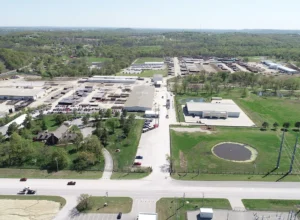Critical thinking is the ability to think clearly and rationally about what to do or what to believe. It includes the ability to engage in rational and independent thinking. Critical thinkers will be able to do the following: understand the logical connections between ideas; identify, construct, and evaluate arguments; detect inconsistencies and common mistakes in reasoning; solve problems systematically; identify the relevance and importance of ideas; reflect on the justification of one’s own beliefs and values.
Critical thinking is not merely accumulating information. Having the ability to memorize facts is not a valid metric for determining critical thinking skills. Critical thinking is the act of taking information and processing it in such a way that one can make better decisions. Critical thinking can help acquire knowledge, improve theories, and strengthen arguments. Critical thinking can be used to refine work processes and improve social institutions.
Importance of Critical Thinking
The ability to think logically and rationally is important regardless of the field of endeavor. Being able to think properly and solve problems systematically is an asset to any career. Critical thinking is very important in the new knowledge economy. This economy is driven by information and technology.
Critical thinking improves language and presentation skills. Thinking systematically can improve the way ideas are expressed. In learning how to analyze the logical structure of texts, critical thinking also improves the ability to comprehend what is read.
Good critical thinking is the cornerstone of science and democracy. Science requires the critical use of reason and logic in experimentation and in the postulation and confirmation of theories. For a democracy to function properly, citizens must think critically about social issues and overcome biases and prejudice to make correct judgments to ensure proper governance.
Ways to Improve Critical Thinking Skills
Ask Basic Questions
Here are a few key basic questions to ask when approaching any problem:
What is already known? How is it known? What is being proved, disproved, demonstrated, critiqued, etc.? What is being overlooked?
Some of the most amazing solutions to problems are stunning not because of their complexity, but because of their simplicity.
Question Basic Assumptions
It’s easy to make a fool of yourself simply by failing to question basic assumptions. Examine assumptions and critically evaluate your beliefs about what’s prudent, possible, or plausible.
Be Aware of Your Thought Processes
A critical thinker is aware of his or her cognitive biases and personal prejudices and how they influence supposed “objective” decisions and solutions. Everyone has biases in his or her thinking. Being cognizant of them is what makes critical thinking achievable.
Think for Yourself
Don’t be overconfident, but understand that thinking for yourself is essential to answering tough questions.
Try Reversing the Hypothesis
A great way to solve a tough problem with no apparent solution is to try reversing the postulation. It may seem obvious that X causes Y, but what if Y caused X?
Evaluate the Existing Evidence
When solving a problem, it’s always helpful to look at other work that has been done in the same area. It’s important, however, to evaluate this information critically, or you can easily reach the wrong conclusion. Ask the following questions of any evidence you encounter:
Who gathered this evidence? How did they gather it? Why?
One can’t arbitrarily assume that this invalidates the study’s results but should question them when a conflict of interest is blatantly obvious.
Understand That No One Thinks Critically All of the Time
You can’t think critically all the time. Critical thinking is a tool that you should employ when you need to make important decisions or solve difficult problems. However, one need not think critically about everything. And even in important matters, one will experience lapses in reasoning. One should recognize these lapses and make a concerted effort to avoid them in the future.
“Education is not the learning of facts, but the training of the mind to think.”
—Albert Einstein










